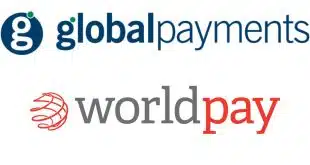If consumer confusion is holding back mobile payments, a startup called XipWire Inc. figures it has an answer. The five-person Philadelphia company earlier this month launched a text-based service that lets handset users pay merchants as well as other individuals. But while other more established payments companies have already started similar services?notably PayPal Inc. and Obopay Inc.?XipWire is banking on a cautious, market-by-market rollout to educate users and boost usage, starting in Philadelphia. “Our approach is one person, one neighborhood at a time,” says Sharif Alexandre, founder and chief executive of XipWire, which was established only last year. “Each person has to be educated. You almost have to hold their hand. That's why we're focused on Philly.” But Alexandre already has other markets in his sights. Boston and New York City, he says, are the most likely next targets. “Depending on how Philly goes, we may [also] extend it to California and Chicago,” he says. XipWire is aimed at users in their 20s and 30s who are accustomed to texting. The company is especially concentrating on college campuses in and around Philadelphia. “Once you leave college, the need for person-to-person usage tends to be lower,” Alexandre notes. He says “several hundred” users have registered so far, and four restaurants are expected to start accepting payments in a few weeks. Merchants pay XipWire a fee of 1% plus 15 cents for each transaction. The fee for person-to-person transactions is 50 cents each, paid by the recipient. The merchant fee is attractive to merchants accustomed to credit card fees, Alexandre says. “We basically wanted to cut that in half,” he says. Also, merchants in cash-heavy businesses might find it appealing not having to carry as much cash around, he says. For now, the company is not levying its fees as part of what Alexandre calls its “promotional period.” That will end, he says, by the end of the year. By then, he expects XipWire will have money-transfer licenses in most states, lifting restrictions some states place on fees. With XipWire, users pay each other by texting commands to a short code. The command includes a so-called XipWire ID for the recipient, or a mobile number for non-registered payees. Persons who are not registered for the service can receive funds by setting up an account, which will have a four-digit PIN attached to it to confirm transactions. Merchants can be paid in a similar fashion, though to streamline checkout XipWire has created an application for the iPhone and iTouch that automates a text message requesting payment. The consumer then responds with her PIN to confirm the transaction. The system will also create anonymous, one-time-use XipWire IDs for users who don't want to give out their actual IDs. XipWire will shortly introduce an application programming interface that will similarly automate payment requests for online merchants, Alexandre says. While the service follows a well-known model for text-based payments, Alexandre figures XipWire's timing may be right. “Americans in general are slow adopters of mobile payments,” he notes. “When Obopay and others made their initial splash in 2005 or so, I don't think Americans were ready for mobile payments. Where we are today is a different place from where we were five years ago.” That readiness for mobile payments, he says, has been underscored by Americans' response to appeals for Haiti relief, much of which has been sent via text messages (Digital Transactions News, Jan. 18). Todd Ablowitz, founder and president of Double Diamond Group LLC, a Centennial, Colo.-based payments consultancy, says XipWire's market-by-market approach to educating consumers and promoting usage could work well. But systems that require registration face hurdles, he cautions. “Pre-registration of anything has had very poor results, with the notable exception of PayPal,” he notes. He also questions texting as a basis for mobile commerce. “Text-messaging will be limited to non-point-of-sale transactions,” he predicts. “It's too clunky while standing at the point of sale.” Gregory J. Holmes, principal of Holmes Associates, a consultancy in Mill Valley, Calif., and formerly president of Obopay U.S., says XipWire faces some daunting infrastructure hurdles. “They will find very quickly there's a high cost to building this business and protecting against the risk inherent in this business,” he notes. “They've got their work cut out for them.” Alexandre may already be getting a sense of that. He sees no letup in activity so far. “It's been a whirlwind, considering we just launched in January,” he says.
Check Also
Global Payments Acquires Worldpay And Sells Its Issuer Business to FIS
Global Payments Inc. agreed early Thursday to purchase the big processor Worldpay LLC for $22.7 …





